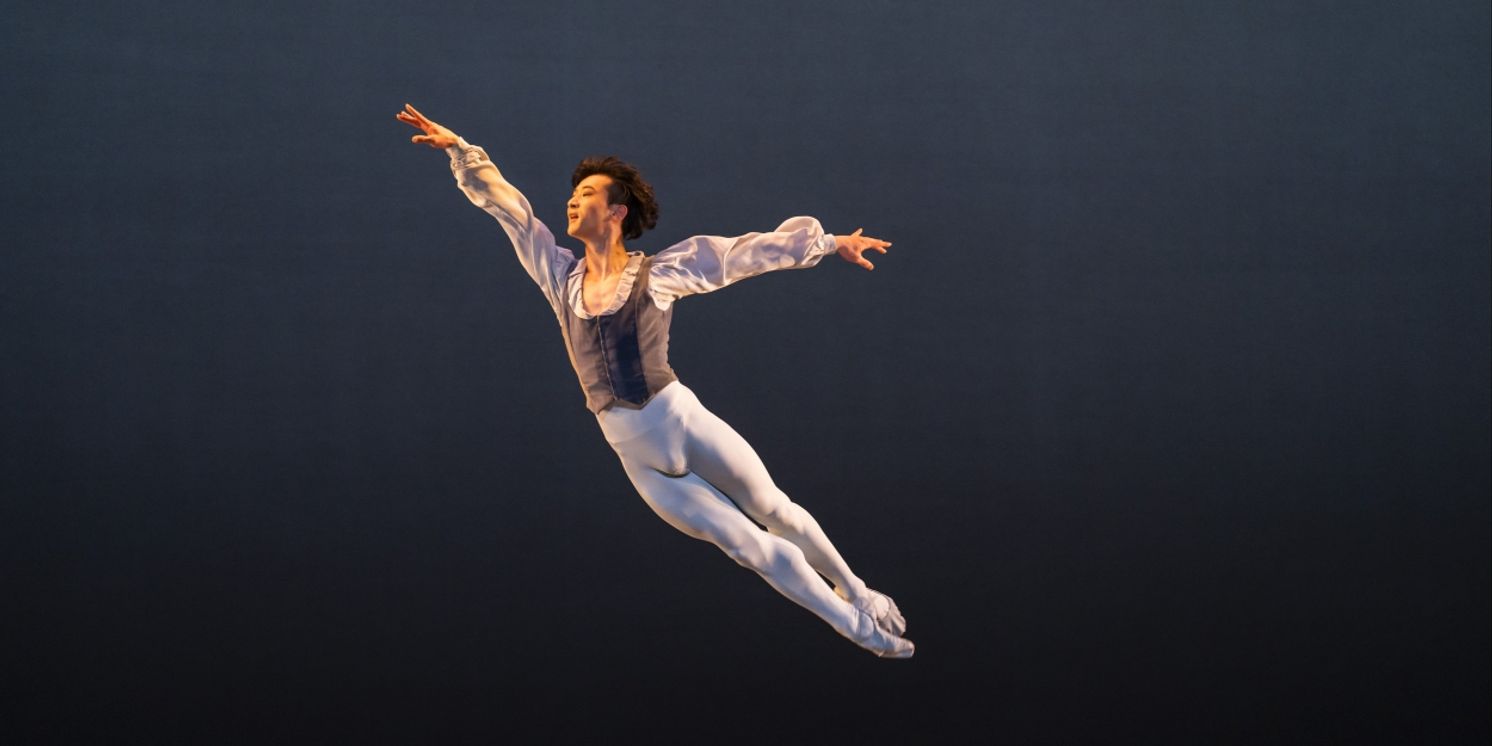Review: THE AUSTRALIAN BALLET: 60TH ANNIVERSARY CELEBRATION, Royal Opera House
A tasteful and diverse gala programming

![]() All good things come to an end, and to signify the culmination of their week-long residency at the Royal Opera House, The Australian Ballet offered a suitably wonderful Celebration Gala acknowledging their 60th anniversary.
All good things come to an end, and to signify the culmination of their week-long residency at the Royal Opera House, The Australian Ballet offered a suitably wonderful Celebration Gala acknowledging their 60th anniversary.
Harlequinade is an intelligent opener for a gala. More than just the traditional pas de deux, it's a suite, so one gets to really enjoy the dancers rather than just empty bravado. Sharni Spencer as Columbine is freshness personified with a steely technique, and Marcus Morelli was a confident hoot throughout. Alexei Ratmansky reconstructed the work in 2018 after Marius Petipa's 1900 original. If you know ballet there's lots to love about Petipa's/Ratmansky's ingenious use of simple danse d'école to build (still) original, choreographic phrasing to Riccardo Drigo's infectious score. If you don't know ballet, you might be wondering if this is a parallel universe.
Next came the second movement pas de deux from Kenneth MacMillan's Concerto (1966). It was very well danced by Amy Harris and Nathan Brook, but conductor Jonathan Lo's unhelpfully slow tempo didn't aid things. It meant we lost the light and shade within MacMillan's choreographic tapestry: moments of crystallised form in adagio phrasing completely evaporated. A big shame, as what was left was a one dimensional rendition of a stunning work.
I New Then (2012) by Johan Inger is a tasteful, modern dance addition to any gala programming. And the cast of nine aren't ballet dancers trying to do contemporary, this is absolutely embodied work. The Van Morrison soundtrack allows the group to fully realise the gestural, easy-breezy movement language, and the feeling of the overall work was both organic and human.
To close the first half was George Balanchine’s Tchaikovsky Pas de Deux (1960). And when Tch Pas is good, it's hard to beat. All one can really say about Ako Kondo and Chengwu Guo is WOW. As a performer of evident ease, Kondo is pure pleasure to observe and Guo offers such physical spontaneity one just needs to sit back and revel. Simply fantastic.
Opening the second half was Justin Peck's Everywhere We Go (2014). I've had the honour of seeing the full work in its birthplace: New York City Ballet, and it travels well. Everything about this piece gives me hope in relation to classical ballet's longevity. Peck understands the correlation between tradition and modernity, and collaborates only with the best creatives. All danced superbly, but Imogen Chapman and Brett Chynoweth were the ones for me.
Narrative pas de deux are difficult to do as standalones. That said, Amy Harris and Nathan Brook did a commendable job with Yuri Possokhov's melodramatic Anna Karenina (2019). I'd be interested to see the full work, to see it fleshed out.
Pam Tanowitz has done it again with Watermark (2021) by showing us the future of dance, where art is experimentation, and discord and cohesion can live side by side. Everything feels new, and Adam Elmes' extended closing solo communicates like a postmodern Nijinsky in our midst. More please.
Little Atlas (2017) by Alice Topp, the Resident Choreographer of The Australian Ballet since 2018, was tasteful but equally predictable. It all feels very Kylián-esque, and numerous times I questioned the agency of Dimity Azoury as the lone woman who appeared more prop than person on numerous occasions.
The performance closed on a high with Rudolf Nureyev's Don Quixote (Vienna Opera 1966, The Australian Ballet 1970). Again Hallberg's curation encasing the iconic pas de deux within a suite, which works successfully. The Fandango felt truly authentic and set the stage well for the couple of the hour: Benedicte Bemet as Kitri and Joseph Caley as Basilio. They performed an absolute stonker of a show, with Bemet infusing the Opera House with evocative Spanish flair, and Caley relying on his technique of the Gods to cause the audience to audibly gasp.
Absolute respect is due to Hallberg for creating such a tasteful and diverse gala programming, as this is rarely the case. The Australian Ballet season at the Royal Opera House has been a resounding success; I don't remember there being this kind of (ballet) buzz in London for quite some time.
Here's hoping they return sooner rather than later, and by then, the passionate, accomplished dancers will be getting the payment they so clearly deserve.
Photo Credit: Tristram Kenton
Reader Reviews
Videos

